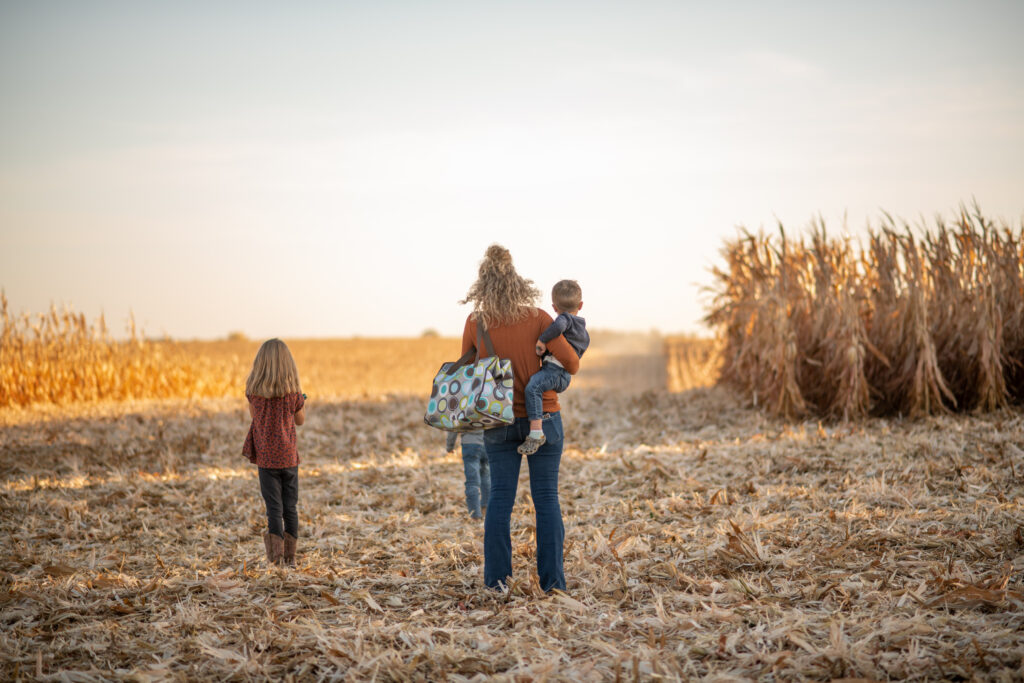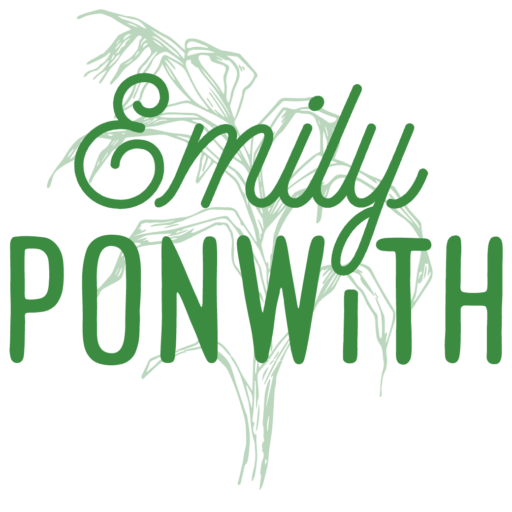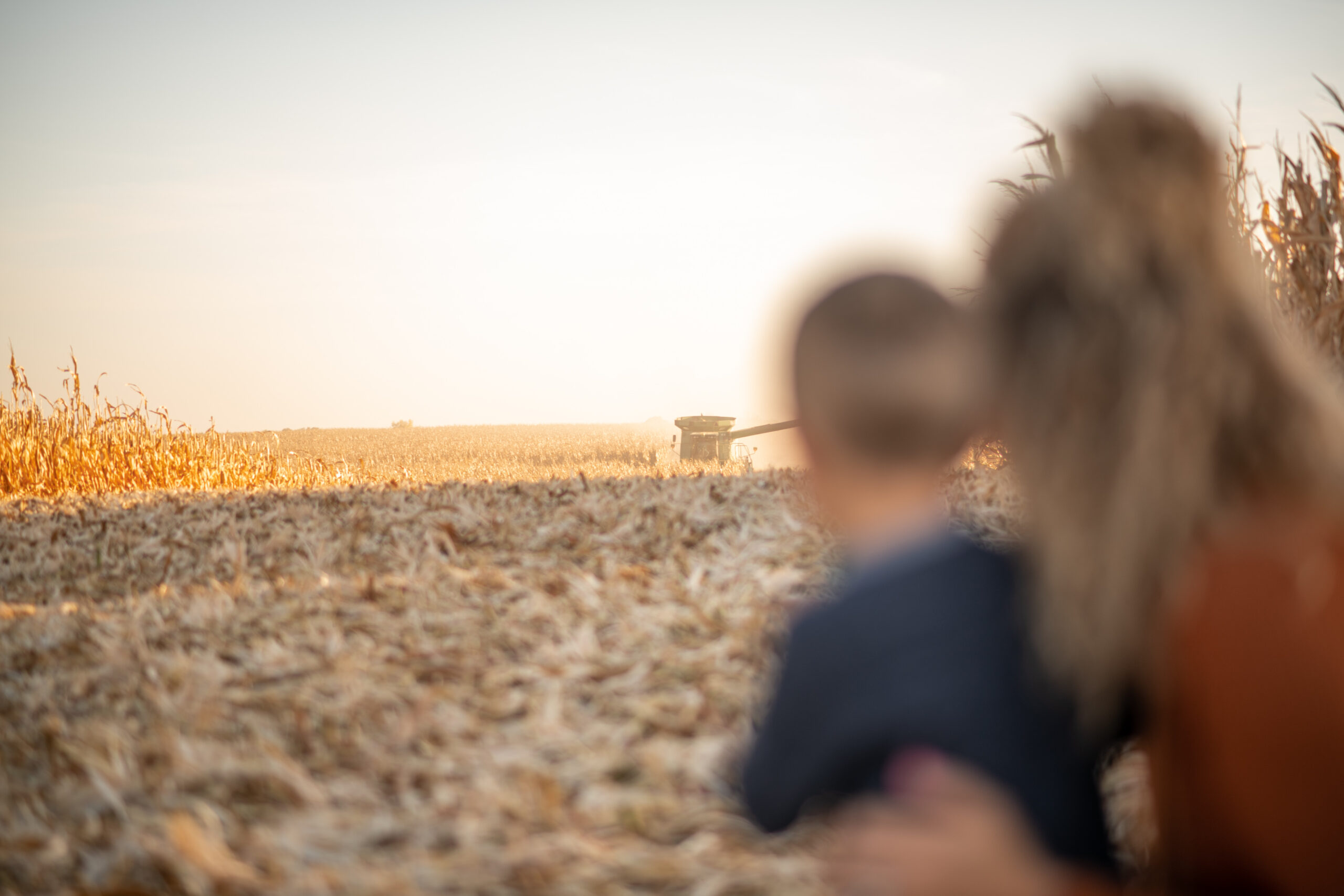Honestly I think each one of us could preach farm safety all day, every day and it still wouldn’t be enough. While the farm is a beautiful place to raise a family, it does not come without risk. Below I have rounded up some of our family’s most referenced farm safety tips in combination with the help of many of you sharing similar practices on your farms.

1. Noise Canceling Ear Muffs
Protect your child’s hearing for life. There are so many loud sounds on a farm that we often overlook because it’s just more of the norm for us. So many loud sounds! Get your kids a pair of noise canceling ear muffs! There are many options on Amazon, but you can find them at most farm stores or sporting goods stores. Allow your kids to help pick them out so they are more excited to try them! While you are at it, grab yourself a pair or stock up on disposable ear plugs to stash in various locations around the farm. Your kids are more likely to wear their ear protection if you are wearing it, too.
2. BRIGHT Colors
B R I G H T colors! If you know your kids are going to be outside, be intentional about what you are dressing them in. Heck, if you live on a farm I recommend just having a wardrobe full of bright clothing so they don’t have to think twice about it when getting dressed for the day! There are a lot of really great bright colors in athletic wear by brands such as Under Armour and Target. My friend Melissa at Hungry Canyon also carries a Wait for Me lineup of bright safety clothing, check it out!
During the winter months, be mindful of what color winter gear you purchase. If there is something bright or colorful available, choose it over a neutral. If you prefer the neutrals for other reasons, make sure they have a bright hat or vest. My friend Emily at The Sparkling Image was able to customize some winter hats in safety yellow and safety pink for us this winter, they have been so great to have on hand.
3. Car Seats
10/10 recommend car seats in the back of your Polaris Crew. They are a win/win because your children will be safer in the event of an accident, and they also stay put in their buckles if you need to hop out quickly to do something farm related. Take advantage of friends moving out of the baby and toddler stages and ask if they’d be willing to pass on seats, that way you aren’t paying full price for a new set just to use around the farm…aka get dirty.
4. Helmets
Speaking of the Polaris Crew…make sure you have proper helmets for your kids to wear, especially when going on longer rides and/or rough terrain. Our kids wore their bike helmets for a long time, but we recently purchased these for them. We put a LOT of miles on in the summer months, excited for this extra layer of protection for our littles. Probably something we should have done a long time ago.
5. Phone Access
Teach your children how to dial 911 or call a trusted adult for help using a cell phone or smart watch. Allow your child to know the password to your phone so they can call someone in the event of an emergency. Have them practice and get familiar with how to do this. Set the boundary that your phone is not a toy, but instead a tool to use when needed.
6. They Can’t See You
Always assume the person in equipment cannot see you, until they make it known that they can. When riding in equipment, wait until the machine is stopped, the door is open or eye contact is made, and the driver waves at you to come. Seat buckle should be on in the buddy seat whenever possible. We love cramming the entire family into the cab for short rides during harvest, but also understand the risk with having that many people in the cab.
7. For the Driver
Buttons and levers in the equipment are for the driver (aka, grown up) who has driven the machine before. However, if age appropriate, teach your child how to throttle back the tractor or stop the machine in the event of an emergency.
8. Situational Awareness
When they hear farm equipment coming, teach them to stop, look, and listen. After they determine which direction it is coming from, get to the grass or other safe place (decided amongst your family) and wait until equipment is out of the way. This is so important on farms because there are often many trucks and different people in and out of the farm on any given day. It isn’t always someone who knows kids live there, so it is extremely important to teach them to be aware of their surroundings.
9. Be Real
This maybe isn’t the approach for everyone, but our kids understand that they could die if they choose to not listen to the rules or boundaries. There was a time in our parenthood journey we were a bit more gentle with our words, but the kids have gotten more independent and more curious so we have gotten more real with them.
10. Over Communicate
Communicate clearly with the other adults and let the kids know who is watching them. Never assume. If I am going to be preoccupied with something I ALWAYS say, “Ryan do you have the kids?” and he responds, “Yes, I have the kids.” Then I know it is safe for me to go do whatever I need to do. Same thing goes for him. We always know who is responsible for watching the kids when we are outside. There is no such thing as over communicating on the farm.
11. Livestock can be unpredictable
Livestock, however gentle they may be, are still animals. They are unpredictable, large, and can be unsanitary. Teach basic animal husbandry to your children, drip drip drip the conversations as they get older. A little bit here, a little bit there. One follower wanted to stress the importance of not turning your back on cattle. And always, wash your hands after chores or handling animals.
12. Involve Them
The more your children are involved on the farm, the more they will naturally pick up and understand. When they get a front row seat to experience the day to day, they will start to connect the dots and see the danger before it arises.
Other Suggestions/Generalized Rules:
- Light up rain boots or shoes
- Wagons and/or strollers whenever possible
- Sunglasses, hats, and sunscreen
- Remove strings from sweatshirts
- Avoid loose fitting clothing
- Stay away from things that rotate (think augers)
- If you can’t see the mirrors, they can’t see you.
- Never ever climb ladders.
- Always assume ‘they’ (the driver) cannot see you.
- Stay out of the bin site and off the stairs on bins.
At the end of the day I think we can all agree on the fact that we want to do as much as we can to keep our kids safe on the farm. Please keep in mind that every farm and every family is different. Out kids are all at different ages and maturities. What works well for some, might not work well for others. I encourage you to have a conversation with the adults and kids involved on your farm to set up boundaries and expectations to keep kids, and everyone else, as safe as possible. We all get to assess our own level of comfortable risk within the farm. There are many things we do with our children that others might not agree with, just as you may feel comfortable with something we do not. At the end of the day, knowing we took steps to protect our children while living out our best life on the farm is the best we can do!
Check it out!
The Farm Safety for Just Kids is a great resource for all things rural safety. I highly recommend checking out this website.
Our kids have participated in the Farm Safety for Just Kids activities at various farm and ag events. It is great for them to hear the farm safety messages from someone other than mom and dad. These opportunities have also opened up the door to conversations we hadn’t had with them yet. For example, the dangers of entrapment in a grain bin. Sharing this graphic from their website about grain entrapment.
I’ve also rounded up some of our favorite farm safety items on Amazon. Check them out HERE (affiliate link).



I love this! Thank you for taking the time to put this together!